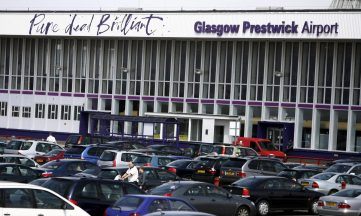More than 80% of families struggled to pay utility bills and afford food last year, a survey has revealed.
Charity Child Poverty in Action Group (CPAG) conducted a rolling survey of 3,000 families on the impact of the UK Government’s two-child limit on social security benefits including universal credit and tax credits, since 2019.
The sixth anniversary of the controversial policy has been marked with research which indicates it has resulted in widespread “suffering and hardship” among families who are struggling to meet the basic needs of children as living costs soar.
Research showed a sharp rise in the number of families reporting that the policy has affected their ability to pay for utility bills from 73% in 2021/22 to 82% in 2022/23.
There has also been a sharp rise in the number of families in work affected with 78% of families saying the policy impacted their ability to pay for food in 2021/22 to 87% in 2022/23.
Approximately 90% of households who are out of work say they struggle to afford food.
Most families impacted by the policy are in work and CPAG estimates that, across the UK, about 1.5 million children are currently affected.
CPAG said that reversing the two-child limit would lift 10-15,000 children out of poverty in Scotland and cost about £85m.
The charity argued that payments provided by the UK government take no account of children in a household and are flat-rate.
John Dickie, director of CPAG in Scotland, said: “Six years to the day since this nastiest of policies came into effect, our survey is showing just how devastating its effects are.
“The two-child limit makes it impossible for parents to provide their children with essentials – and the cost of living crisis is adding extra pain.
“It’s a policy that is undermining the efforts of Government in Scotland to reduce child poverty and must be removed as a matter of utmost urgency by UK Ministers.
“In the meantime, the Scottish Government should act to mitigate it as fully as possible before it does more damage to children and to family life.”
A spokesperson for the Department for Work and Pensions said: “The two-child policy means families on benefits are asked to make the same financial decisions as families supporting themselves solely through work, including considering our comprehensive childcare offer for working parents and child benefit for all children.
“There are careful exemptions and safeguards in place within the policy to protect people in the most vulnerable circumstances.”
Scotland’s social justice secretary Shirley-Anne Somerville said: “The Scottish Government shares the frustrations of the Child Poverty Action Group and we are taking the necessary steps to help mitigate the damaging impact of UK Government welfare cuts.
“We call on the UK Government to urgently review reserved benefits, including Universal Credit as they are fundamentally not fit for purpose
“We are already providing significant funding to help bridge the gap between what people need in benefits from the UK Government and what they actually receive. Eligible households could be £2,500 better off on average per year as a result of our action.”
She added that the Scottish Child Payment was increased in November to £25 per week and extended to children up to the age of 15.
Somerville continued: “The Scottish Fiscal Commission forecasts around 387,000 children will be eligible in 2023/24 and based on modelling from March 22 it is estimated to lift 50,000 children out of poverty.
“We will also spend up to £84m in 2023-24 on Discretionary Housing Payments to mitigate not only the UK Government’s bedroom tax and the ongoing freeze to Local Housing Allowance rates, but now also the benefit cap which is pushing families into hardship.”
Follow STV News on WhatsApp
Scan the QR code on your mobile device for all the latest news from around the country


 iStock
iStock


























